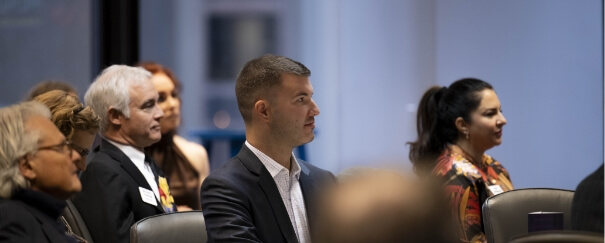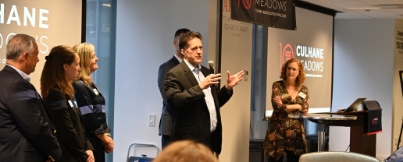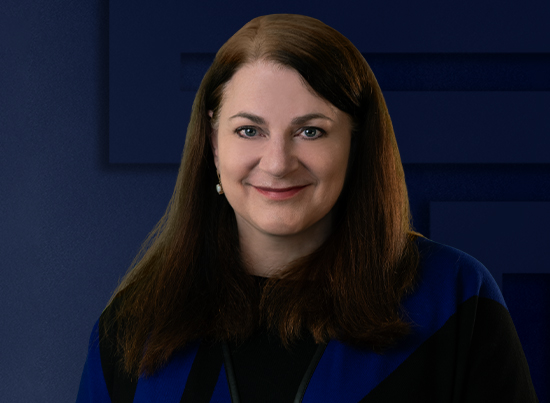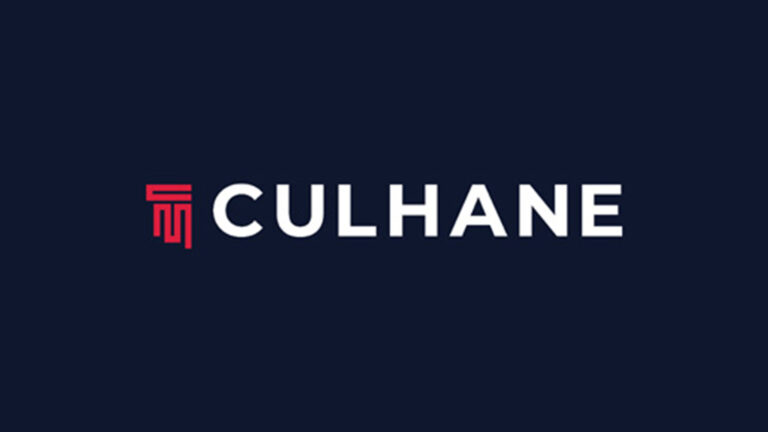Dialpad recently interviewed Culhane Meadows’ CIO Kim Verska to discuss overseeing the flow of information within our fully remote law firm.
Here is Kim’s interview:
Incorporating new technology in the legal realm can be tricky—it’s a traditional field with many compliance and confidentiality requirements. Culhane Meadows, however, bucked that trend when it was formed in 2013 as an entirely cloud-based firm. It’s now America’s largest full-service national women-owned law firm, employing partner-level attorneys without the expensive trappings of Big Law.
Their CIO, Kim Verska, is a technology and data security lawyer who has been working in virtual-first law firms since 2005. Unlike a traditional CIO, she leaves the technology platforms to the CTO, and focuses mainly on the information side of the business because the legal field is so information-heavy.
But Culhane Meadows isn’t just virtual-first—it’s 100% virtual. Everyone works remotely. While being cloud-based makes the firm modern and nimble, it also adds a new layer of challenges surrounding file management and the human error that so often accompanies any kind of tech integration.
Here is what Verska keeps top of mind while overseeing the flow of information of a fully remote legal firm.
Data, data, data
Triple checking compliance is a must. This is true for any law firm, whether in-office or virtual, but the unique circumstances of a distributed workforce in this field make it even more important. For example, what happens to client and case information when an attorney leaves the firm?
“A lot of my time these days is spent working on attorney entrances and exits,” says Verska, “because the file transfers are all controlled by ethical obligations.”
Without a central server where data is securely stored, information has the potential to be literally anywhere—unless its movement is properly controlled. “You’ve got these attorneys in their home offices who have laptops, and the challenge is making sure we have access to all the information,” she says. Her expertise as both a privacy attorney and CIO comes into play here with a set of rules enforced throughout the entire distributed workforce.
Consistent file management is her plan of attack, but her long-range view ensures that compliance is never a one-step process, and that all the angles are covered. “We can wipe someone’s laptop and take all that information away if we have to,” she says, “but the important thing is ensuring they’re complying along the way.”
This goes for encryption on all devices, and is reiterated through education, training, and a remote help desk to answer questions.
The systems that a virtual law firm needs
Taking on and completing legal cases relies on a series of checks and balances, and in a fully-remote law firm, that requires a set of remote-friendly systems. Two very important aspects of legal work are billing and ensuring there is no conflict of interest with a client.
The company uses a separate integrated billing suite that meets all their complex needs, from partner-only billing, to different formulas based on the type of work being done. “It was a big challenge to find a proper billing system,” says Verska. Without a centralized office, the data needs to do a lot more heavy lifting to ensure hours and dollars are properly accounted for. “The software does robust reporting so we can accurately account for and direct the money a client sends.”
Similarly, conflicts of interest are important to avoid at all costs. In order to achieve this, law firms need to be able to check that work efficiently and accurately.
“Back in 2005, of course, we had a spreadsheet and someone who would check it row by row—that is not going to work over time,” says Verska.
“Now, not only do we have a master client database, but we also check people’s billing entries to confirm that there aren’t any conflicts.” All of these systems ensure ethical obligations are being met, and they don’t require hours of scrolling.
Finally, cyber liability insurance is a consideration for every major law firm. But in a virtual-first environment, it’s an even greater one. “Your clients want you to have it and you need to have a good carrier,” says Verska. If you’re thinking of moving your legal practice to a cloud-based environment, that’s an investment you need to make.
A more hands-on process—at a distance
Working in a distributed office, the role of a CIO requires a lot more people management.
“You can make the best technology process, but a lot of the job has to do with choices employees are going to make in their own environments.”
In other words, it’s less about the technology and more about the people using it. “With regards to something like securing a home router, you can’t do that from afar,” says Verska. “You need to make available someone who can get on an employee’s system remotely and help them in case they don’t know how to do it.”
Human error is the variable in a remote legal firm that you can’t control for entirely, so Verska and her team lean on training—like recurring phishing reports and tests—and reliable systems to protect the very sensitive information that makes up the bulk of their business.
“There’s a million great technologies, but it’s the human element that’ll get you if you’re not careful,” says Verska. “It takes a lot of managerial work. In terms of security, unfortunately, I trust technology to consistently do the right thing more than I trust busy, distracted people.”
Despite the expected obstacles that come along with being a disruptor in a traditional space, the pandemic has proven that high-level remote legal work can be done effectively with the right approach and processes in place. For Verska, juggling the information management needs of a legal business, along with the realities of a remote workforce means engaging from all angles, knowing that the technology serves the higher goals of the firm.
“You need to know what’s critical from the legal perspective, and the ethical perspective—then you can focus on technology.”
The complete article can be found here.
About Culhane Meadows – Big Law for the New Economy®
The largest woman-owned national full-service business law firm in the U.S., Culhane Meadows fields over 70 partners in ten major markets across the country. Uniquely structured, the firm’s Disruptive Law® business model gives attorneys greater work-life flexibility while delivering outstanding, partner-level legal services to major corporations and emerging companies across industry sectors more efficiently and cost-effectively than conventional law firms. Clients enjoy exceptional and highly-efficient legal services provided exclusively by partner-level attorneys with significant experience and training from large law firms or in-house legal departments of respected corporations. U.S. News & World Report has named Culhane Meadows among the country’s “Best Law Firms” in its 2014 through 2022 rankings and many of the firm’s partners are regularly recognized in Chambers, Super Lawyers, Best Lawyers and Martindale-Hubbell Peer Reviews.
The foregoing content is for informational purposes only and should not be relied upon as legal advice. Federal, state, and local laws can change rapidly and, therefore, this content may become obsolete or outdated. Please consult with an attorney of your choice to ensure you obtain the most current and accurate counsel about your particular situation.









